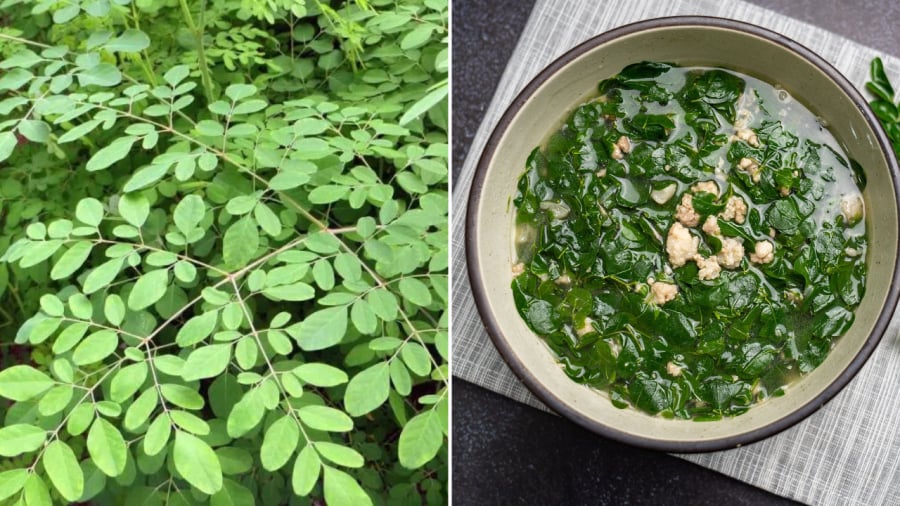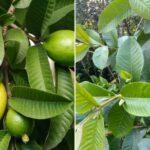Moringa, also known as the ‘Miracle Tree’, is an incredibly versatile plant with a wide range of benefits. The scientific name for this tree is *Moringa Oleifera Lam (M. Pterygosperum Gaertn)* and it is a part of the Moringaceae family.
This tree is easy to grow and can be propagated through cuttings. The leaves can be consumed fresh as a vegetable or dried and stored for later use. In addition, the roots, seeds, and fruits are also used for medicinal purposes.
Moringa leaves are similar in appearance to Vietnamese coriander leaves, but smaller in size and with a subtle fragrance. Nutritionally, 100 grams of moringa leaves provide 6.35g of protein, 1.7g of fat, 8.0g of carbohydrates, 1.9g of fiber, 112mg of phosphorus, and 28mg of iron.
**Health Benefits of Moringa:**
*- Digestive Health:* Moringa leaves are rich in fiber, which aids digestion, stimulates bowel movement, and helps relieve constipation.
*- Antioxidant Properties:* Moringa leaves are packed with antioxidants such as quercetin, kaempferol, caffeoylquinic acid, and rutin, as well as vitamins A and C. These compounds combat the negative effects of free radicals. Additionally, the presence of niazimicin in the leaves helps prevent and fight the growth of tumor cells.
*
 *
*
*
*
The Many Benefits of Moringa for Your Health
*
**
*
*
*- Liver Support:* The leaves contain silymarin, which boosts liver function and protects it from damage, especially in those who consume a high-fat diet.
*- Diabetes Management:* Moringa leaves contain compounds similar to natural insulin, helping to regulate blood and urine sugar levels, making it beneficial for diabetics.
*- Brain Health:* Moringa leaves positively impact serotonin and dopamine levels, protecting the brain from neurodegenerative diseases.
*- Immune System Boost:* Moringa is rich in vitamin C and antioxidants, strengthening the immune system and increasing the body’s resistance to diseases.
*- Blood Pressure Regulation:* The presence of niazimicin and isothiocyanate in moringa leaves helps prevent thickening of the arteries and supports stable blood pressure.
*- Anemia Relief:* Moringa leaves are a rich source of iron, making them beneficial for those suffering from iron-deficiency anemia.
**Precautions when consuming Moringa:**
Moringa has blood-stimulating and blood-moving properties, so pregnant women should consume it in moderation. The presence of alpha-sitosterol, which has a similar structure to estrogen, may reduce the chances of conception. During pregnancy, the body produces high levels of progesterone to relax the uterus and prevent contractions. Conversely, alpha-sitosterol can cause increased uterine contractions, increasing the risk of miscarriage.
On the other hand, moringa is an excellent food for postpartum women, as it stimulates digestion and provides a range of nutrients to aid in recovery.
Due to its high vitamin C content, moringa may not be suitable for individuals with stomach ulcers. If consumed, it should be eaten in moderation and combined with other foods to minimize potential negative effects on the digestive system.
While moringa offers numerous health benefits, it is recommended to consume it only 2-3 times a week.
“Nature’s Hidden Gem: The Sweet Veggie with a Magic Touch”
Introducing a vegetable that is sweet and savory, with leaves resembling papaya, yet remains unknown to many. This humble vegetable boasts an impressive nutritional profile, making it an ideal food for those recovering from illness. With a taste akin to MSG, this vegetable is a hidden gem in the culinary world, waiting to be discovered by discerning palates.



































